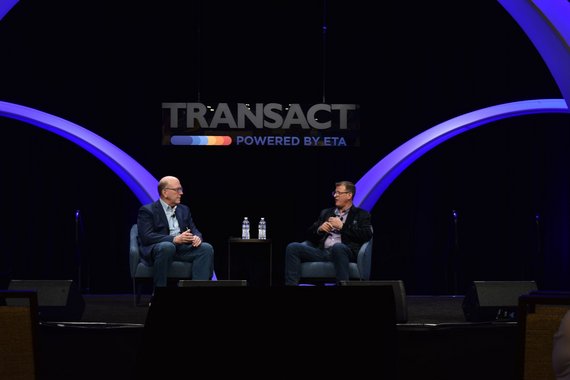
- Two minutes read
Future of fintech: Expert panel
Paysafe’s Joseph Daly, offered his insights on the Future of Financial Technology in this expert panel gathered for USA Today's fintech supplement Future of Business and Tech (FBT).
Paysafe’s CEO of US Payment Processing, Joseph Daly, offered his insights on the Future of Financial Technology in this expert panel gathered for USA Today's fintech supplement Future of Business and Tech (FBT).
FBT: What is the number one way technology has transformed the financial industry?
JOSEPH DALY: The growth in e-commerce has created an unprecedented shift towards digital and alternative payment methods and mobile-initiated transactions. Demand is increasing for real-time data analytics, and the line between online and “bricks-and-mortar” commerce is becoming increasingly blurred. Companies that want to succeed in this environment need to invest in technology and services that support omnichannel experiences. Recent data compiled by Invesp suggests those that do so retain an average of 89 percent of their customers.
In your opinion, what is the biggest obstacle that the financial technology industry is facing?
One of the biggest challenges we’re seeing is in the development of technology to satisfy increasing demands for buyer convenience — such as one-click remember-me features — whilst on the other hand developing heightened security parameters to protect both consumers and businesses against fraud with dual factor authentication. We’re continuously assessing how to protect both consumers and merchants without creating friction, and this is a challenge that the whole industry is facing today. What changes do you see in store for the fintech industry five years down the road?
The digitization of commerce will continue to shift financial consumption habits from traditional payment formats to new, digitally-enabled platforms and mechanisms. This shift will demand new capabilities, new technologies and new thinking from the fintech industry. E-commerce and cross-border commerce and remittance will be key areas of growth and opportunity globally, while the challenge will be to deliver this against a backdrop of significant global regulatory change.




